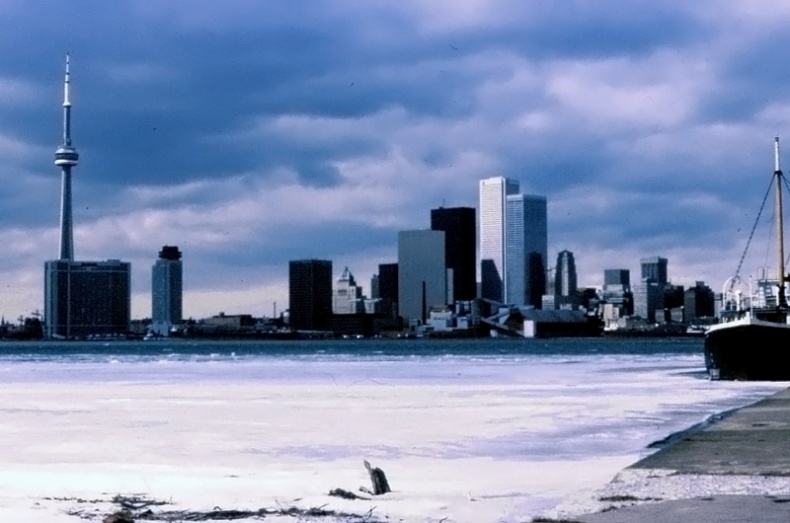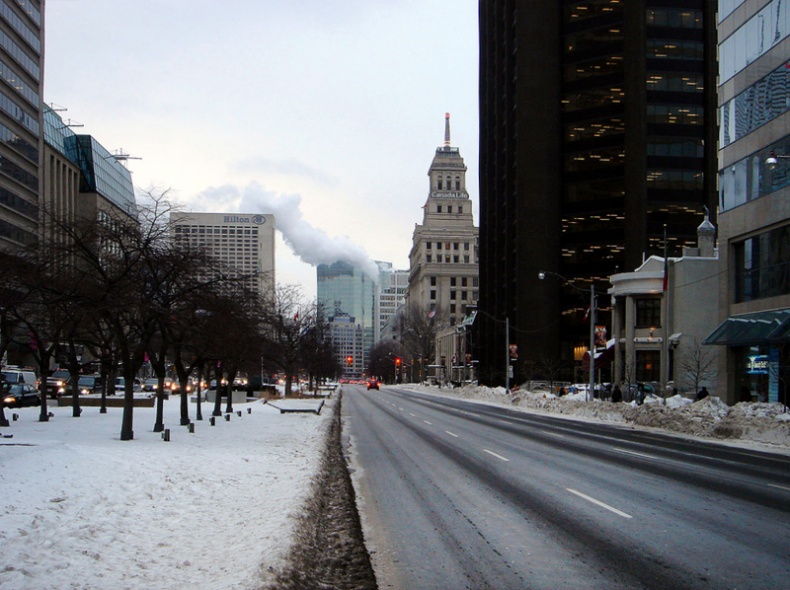"Enjoy it while it lasts."

Toronto Skyline by Robert Taylor
Thursday night was a date that every real estate lover has been waiting for. The Real Estate Board of Greater Vancouver released housing data for December and 2012 as a whole. The results confirmed what housing professionals have been predicting for months: the one-time epicentre of our housing boom has been smashed.
The City of Toronto
December 2012 home sales in the City of Toronto fell 22.8 per cent compared to last year's figures. Average price rose by 4.4 per cent, however.
Toronto's condo market, which Finance Minister Jim Flaherty cited when he introduced the new rules effective in July, saw a sales drop of almost 27 per cent over the course of December, with average prices down 0.9 per cent.
Semi-detached houses have been hit even harder than condos. Sales fell by a significant 35.2 per cent despite the average price holding up higher than last year by 4 per cent.
There were 154 townhouses sold in December 2012, which is 20 per cent less than in December 2011. Again, prices went up last month by 5.2 per cent.
Detached houses were the best-selling house type last month despite the fact that there were 12.3 per cent fewer houses sold in December 2012 than in December 2011. If you wanted to buy a detached house last month, on average, you would need to spend $173,000 more.
The main reason behind the decreasing home sales is Toronto's Land Transfer Tax and Ottawa's stricter mortgage regulations. Buying a house became more difficult and therefore some potential homebuyers postponed the purchase of a home.
Greater Toronto Area
Houses in Greater Toronto Area were selling better and for more than in the City of Toronto. Detached houses were the best-selling house type in the GTA as well. However, the average price for these units rose 8.1 per cent compared to December 2011. A preference for homebuyers to stay closer to nature has become evident.
Sales of semi-detached and town houses are lower by 15.4 and 15.2 per cent, respectively. The average price for a unit rose approximately by 5 per cent.

Toronto in Winter by IKs World Trip
The condo market in the GTA saw a hard hit again in December 2012. This is the only house type that has been selling equally in The City of Toronto and in the GTA, with the only difference lying in higher prices for condo in the GTA. Homebuyers paid $61,389 more for condo in the GTA than in the City.
What Does It Mean?
"Robust annual rates of price growth were reported through most months of 2012. Price growth was strongest for low-rise homes, including singles, semis, and townhouses. Despite a dip in sales, market conditions remained tight for these home types with substantial competition between buyers."
—Jason Mercer, senior manager of market analysis for TREB
Overall, nothing helped propel the economy like the real estate market. It became the economic engine in Canada and accounts for as much as three quarters of the increase in GDP in 2012, while residential investment covers as much as 7 per cent of GDP — a historically high level.
The boom and economic boost has been one thing. But massive overbuilding is quite another. Over the last two years, housing stats averaged almost 200,000 units, while only 175,000 is needed. Given the fact that GTA detached houses are selling better than those in the City and condos, we can only believe that 2013 will be better than forecasted. Good luck!




